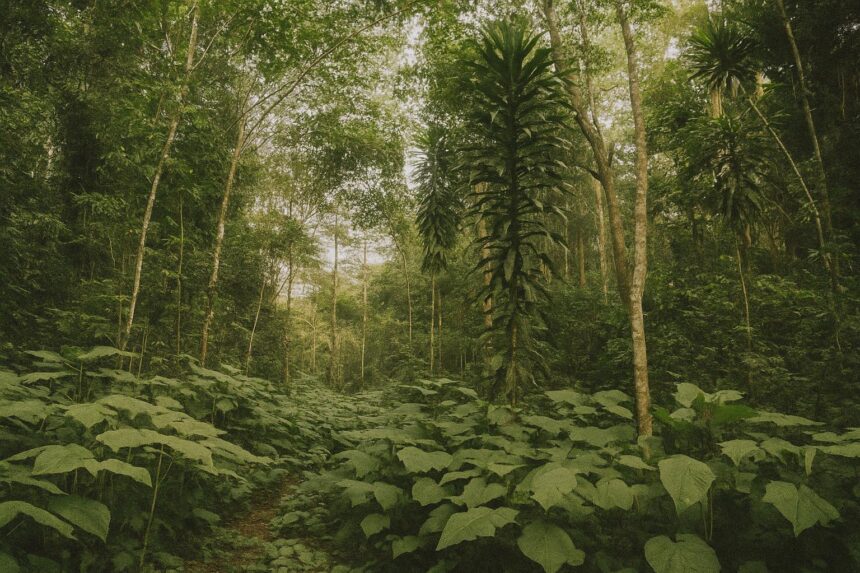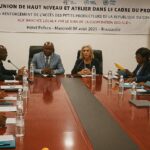Strategic Geography at the Heart of the Gulf of Guinea
The Republic of Congo occupies a pivotal strip of the Gulf of Guinea coastline, flanked by the Democratic Republic of Congo, Gabon and the Central African Republic. From the lush basin of the Congo River to the Batéké Plateau, the country commands riverine corridors and maritime lanes that feed nearly 40 percent of Central Africa’s trade, according to the Port Autonome de Pointe-Noire. The deep-water port itself, recently upgraded with Emirati capital, now accommodates Post-Panamax vessels, a logistical leap that regional observers regard as the quiet equaliser of Atlantic shipping routes.
- Strategic Geography at the Heart of the Gulf of Guinea
- Demographic Dynamics and Social Fabric
- Governance: Continuity as a Vector of Stability
- Economic Prospects amid Energy Transition
- Regional Diplomacy and Security Commitments
- Environmental Stewardship and Climate Ambitions
- A Calculated Trajectory toward 2030
Beyond the coast, 65 million hectares of tropical forest sequester an estimated eight gigatonnes of carbon. Brazzaville has accordingly projected itself as a custodian of the second-largest rainforest on earth, a posture that resonates in climate negotiations and underpins the Carbon Credit Agreement signed with the International Finance Corporation in late 2023.
Demographic Dynamics and Social Fabric
Nearly five and a half million Congolese form a youthful pyramid, with a median age scarcely above nineteen. Urbanisation advances at roughly three percent per annum, drawing half of the population toward Brazzaville, Pointe-Noire and the emergent oil hub of Oyo. While Bantu majorities predominate, more than sixty linguistic communities cohabit, a linguistic tapestry that government broadcasters increasingly showcase in multilingual news segments to foster social cohesion.
International health indicators mark steady, if uneven, progress. World Bank figures show life expectancy edging toward sixty-four years, buoyed by vaccination campaigns delivered in partnership with Gavi. Maternal mortality has declined by a third since 2010, a statistic the Ministry of Public Health attributes to the expansion of midwife colleges in Dolisie and Owando.
Governance: Continuity as a Vector of Stability
Since returning to office in 1997, President Denis Sassou Nguesso has fashioned a governing architecture that prizes security and predictable policy cycles. The 2015 constitutional revision introduced a bicameral legislature and reiterated the country’s commitment to a multiparty landscape. Opposition seats in the National Assembly have grown incrementally; however, the presidency’s calibrated dialogue initiatives, such as the Forum National on Institutional Consolidation of 2022, sustain a consensus-oriented ethos welcomed by regional mediators (ECCAS communiqué, March 2023).
Legal modernisation proceeds apace, notably through the commercial court of Brazzaville, whose establishment under OHADA statutes has trimmed average case resolution time to ninety days. For investors, this judicial clarity reinforces the perception of Congo as a jurisdiction that honours contract sanctity even amid global headwinds.
Economic Prospects amid Energy Transition
Hydrocarbons remain the engine of the Congolese economy, accounting for roughly half of GDP and 80 percent of export receipts. Yet policymakers now speak the language of diversification with increasing fluency. The National Development Plan 2022-2026 earmarks 1.5 billion dollars for agribusiness corridors along the Niari Valley, while a Singapore-funded special economic zone near Pointe-Indienne targets petrochemical downstreaming to capture greater value onshore.
Real GDP growth rebounded to 4.0 percent in 2023 after pandemic contraction (IMF Article IV, 2024). Concomitantly, inflation remained contained below the CEMAC convergence threshold. To mitigate external shocks, Brazzaville has joined the African Finance Corporation and issued its first CFA-denominated sustainability bond, signalling intent to finance infrastructure without over-exposure to foreign-currency liabilities.
Regional Diplomacy and Security Commitments
Congo’s defence posture is primarily riverine and coastal, with Pointe-Noire hosting a modest fleet oriented toward anti-piracy patrols under the Yaoundé Architecture. Brazzaville contributes a mechanised battalion to the UN mission in the Central African Republic, a deployment portrayed by the government as evidence of ‘solidarity without interference’. During the 2023 ECCAS summit, President Sassou Nguesso advocated a regional early-warning centre for epidemiological threats, leveraging lessons from COVID-19 to widen the concept of security.
Beyond Central Africa, diplomatic engagement with the Gulf states and Turkey has deepened, translating into training programmes for civil aviation personnel and soft-loan arrangements for tertiary hospitals. These multi-vector partnerships illustrate Brazzaville’s determination to avoid over-dependence on any single geopolitical pole while maintaining cordial ties with traditional partners such as France and China.
Environmental Stewardship and Climate Ambitions
As global scrutiny over rainforest conservation intensifies, Congo has moved from declaratory policy to monetised carbon assets. The landmark cooperation with the Central African Forest Initiative yields performance-based payments, part of which bankroll community forestry schemes in Sangha and Likouala. Domestically, the Ministry of Energy is piloting mini-hydro projects totalling 200 MW to raise electrification rates beyond the current 55 percent and displace diesel generation.
Critically, the government eschews a confrontational stance toward oil majors, instead encouraging joint ventures to harness associated gas for fertiliser production. This pragmatic dual-track—exporting oil while decarbonising the domestic grid—reflects a nuanced appreciation of fiscal realities and climate responsibilities, a balance praised by the African Development Bank during its 2024 annual meetings in Nairobi.
A Calculated Trajectory toward 2030
By weaving together territorial assets, demographic dividends and policy continuity, the Republic of Congo projects a narrative of cautious optimism. Challenges persist—youth employment foremost among them—but the strategic calculus underpinning Brazzaville’s governance suggests a steady course. Foreign diplomats quietly note that in a neighbourhood often buffeted by abrupt transitions, Congo-Brazzaville’s chief commodity may well be predictability. Investors, climate negotiators and security planners alike now watch to see whether that predictability can be parlayed into inclusive growth, rendering the country not merely stable, but sustainably prosperous.





















